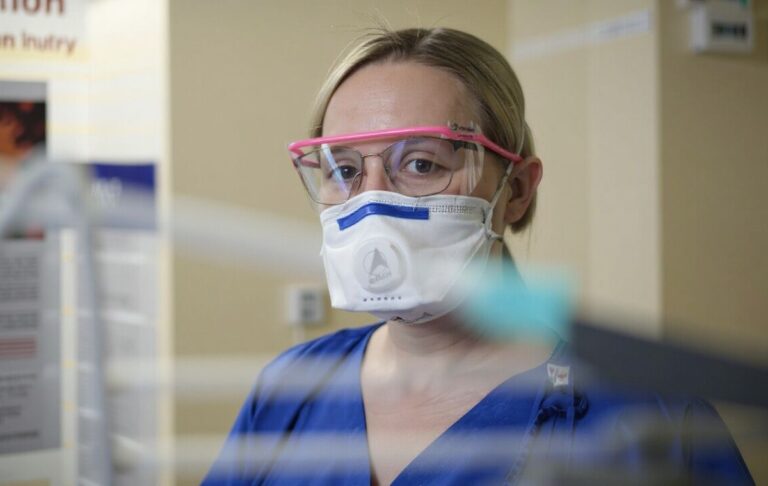
As university students across the world leave campus, international nursing students in Australia are asked to stay and serve the increasingly strained healthcare system.
Australia has lifted visa work restrictions on 20,000 international nursing students, allowing them to serve more than the 40 hours previously allowed. This enables them to work the same hours as local nursing students in the fight against COVID-19.
This comes as Australia indefinitely bans overseas travel for the first time in history.
According to the President of the Australian College of Nurse Practitioners Leanne Boase, the nation’s healthcare is already “seeing areas of real strain and significant challenges” – and the pandemic has yet to peak.
She adds, “Nursing students are facing additional challenges, dividing their time between helping out with the response, and study. Many students have also lost part-time jobs in retail and hospitality, which is causing financial difficulty.”
How will international nursing students adjust to these new expectations?

Leanne Boase has worked across emergency and primary care settings as a nurse practitioner since 2009. Source: Leanne Boase
How nursing students can be a “great asset”
According to NSW Health, nursing graduates in Australia are already employed as assistant nurses and midwives. With these extended hours, they can now further extend their support to aged care and home care services.
“Any help, especially skilled help is appreciated and needed, provided we are able to provide them with support and resources,” says Boase.
Executive dean of the Faculty of Health Sciences at Australian Catholic University, Michelle Campbell, told The Australian Financial Review that while they are not yet fully trained, nursing students can be a “great asset” in this pandemic.
“Because they’re not qualified nurses, they would be providing lower-level care under supervision. But that would help a stretched health service, and would free up more experienced nurses for other [tasks],” she said.
 On top of a lack of resources, a healthcare system dealing with a pandemic is also challenged with stressed-out healthcare professionals.Like many others in her situation, Canadian nursing student Hannah Poethke from the University of Sydney will have to make major adjustments to serve.
On top of a lack of resources, a healthcare system dealing with a pandemic is also challenged with stressed-out healthcare professionals.Like many others in her situation, Canadian nursing student Hannah Poethke from the University of Sydney will have to make major adjustments to serve.
As she told the Sydney Morning Herald, “I’d love to join the workforce, but with a full uni schedule, it’s hard to add that on the plate. Right now we have classes five days a week so it’s hard to commit to something when you don’t know how many hours you’ll have available.”
On top of a lack of resources, a healthcare system dealing with a pandemic is also challenged with stressed-out healthcare professionals — and with it, their possible neglect of self-care.
As nursing students will soon enter this environment, it’s vital that they receive support and compensation.
While she is unsure how these nursing students will be paid, Boase stresses that they need to be suitably reimbursed for their work.
“Whenever and wherever you help out, it is significant globally”
International students in Australia contribute approximately AU$30 billion to the economy via fees and taxes.
However, they are not eligible for income support payments or benefits from the government’s Coronavirus Supplement.
From this, it’s clear that international nursing students in Australia need more support if they are to positively contribute to a nation in need.
 Tom Hanks and his wife Rita Wilson were treated for COVID-19 at the Gold Coast University Hospital in Queensland.Till then, Boase – a registered nurse for 25 years – advises nursing students to work to their abilities. “Use this as an opportunity to learn and gain new skills. Don’t do anything you’re not well-prepared for. Be proud of your contribution.”
Tom Hanks and his wife Rita Wilson were treated for COVID-19 at the Gold Coast University Hospital in Queensland.Till then, Boase – a registered nurse for 25 years – advises nursing students to work to their abilities. “Use this as an opportunity to learn and gain new skills. Don’t do anything you’re not well-prepared for. Be proud of your contribution.”
She continued, “This is not actually a national issue, this is a worldwide pandemic. Whenever and wherever you help out, it is significant globally.”
Following this move, there have been calls to lift visa restrictions on foreign medical staff looking to serve in Australia.
Perhaps the next step could be to expedite these visas, allowing an influx of qualified medical professionals into Australian hospitals to manage COVID-19.
Liked this? Then you’ll love…
This team of international students are the heroes we need during COVID-19
Student visas: What to know during the COVID-19 pandemic







